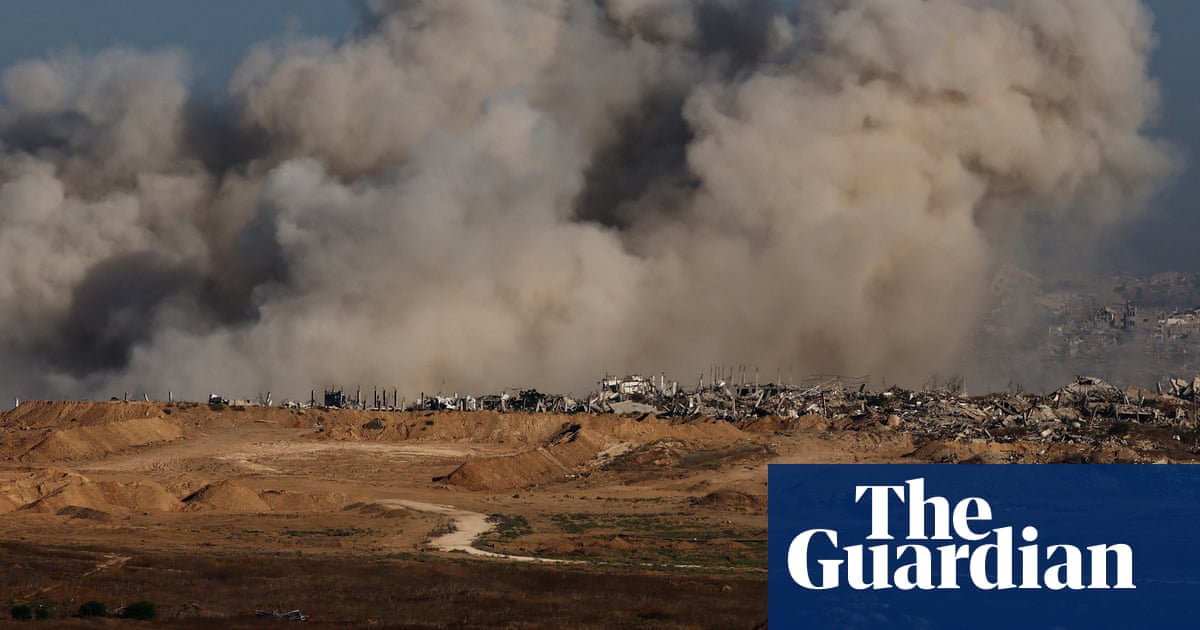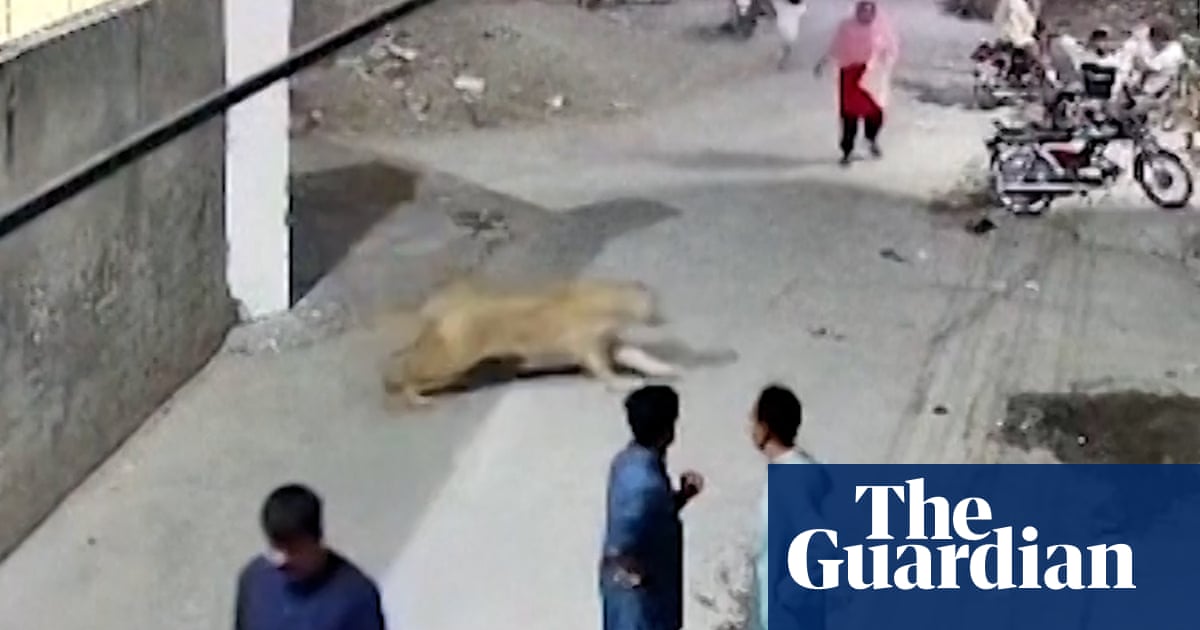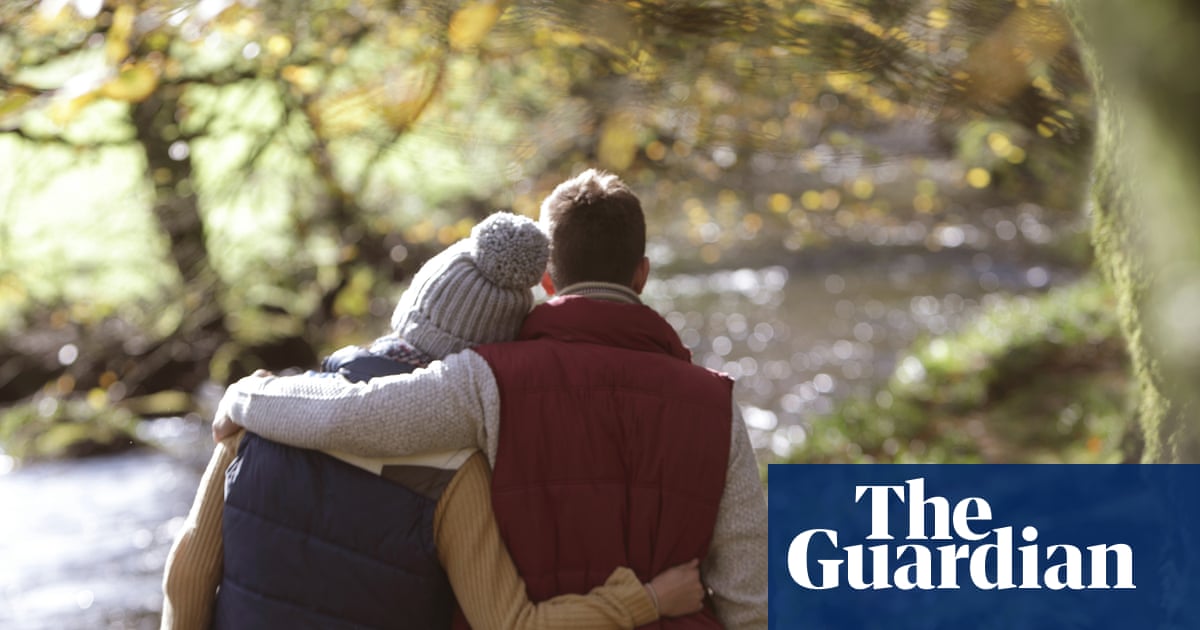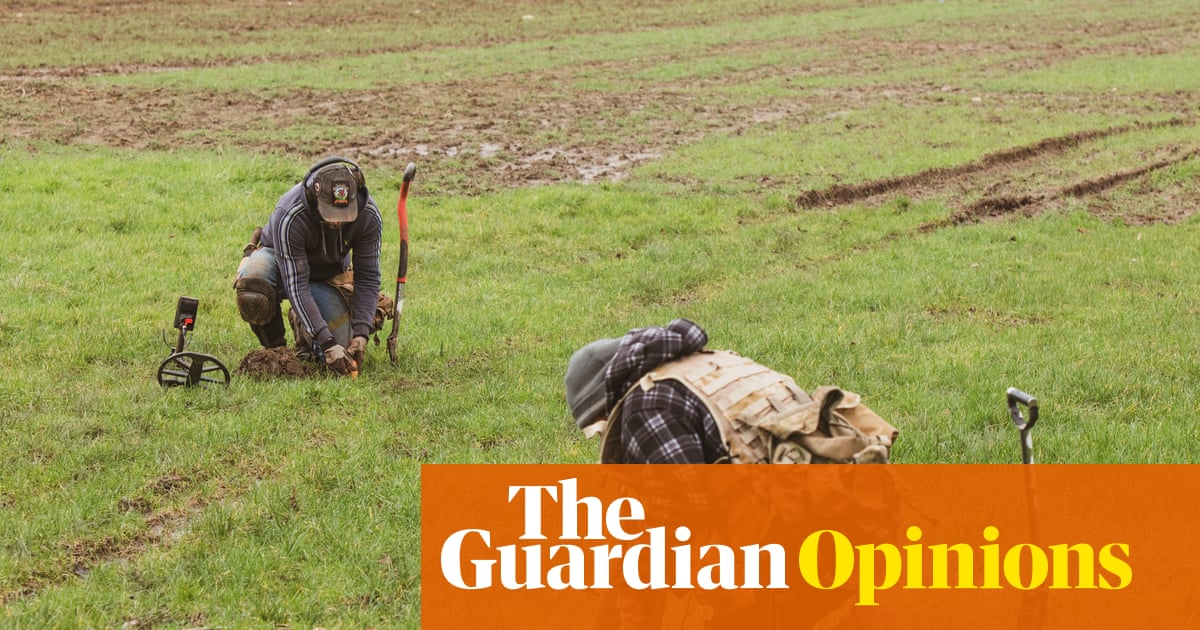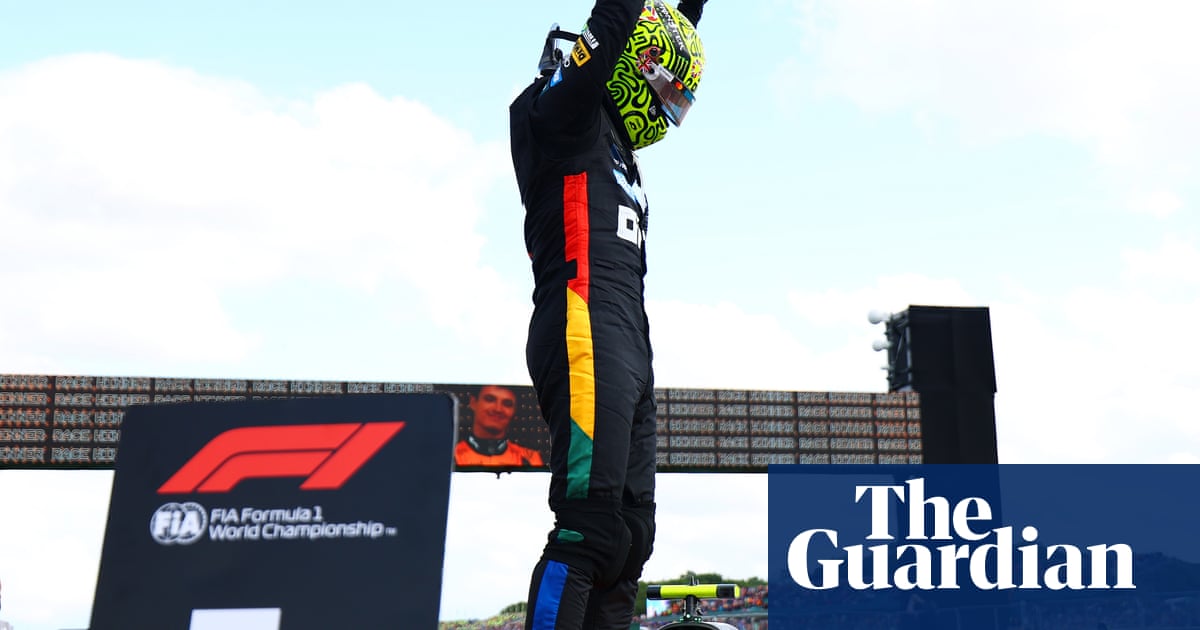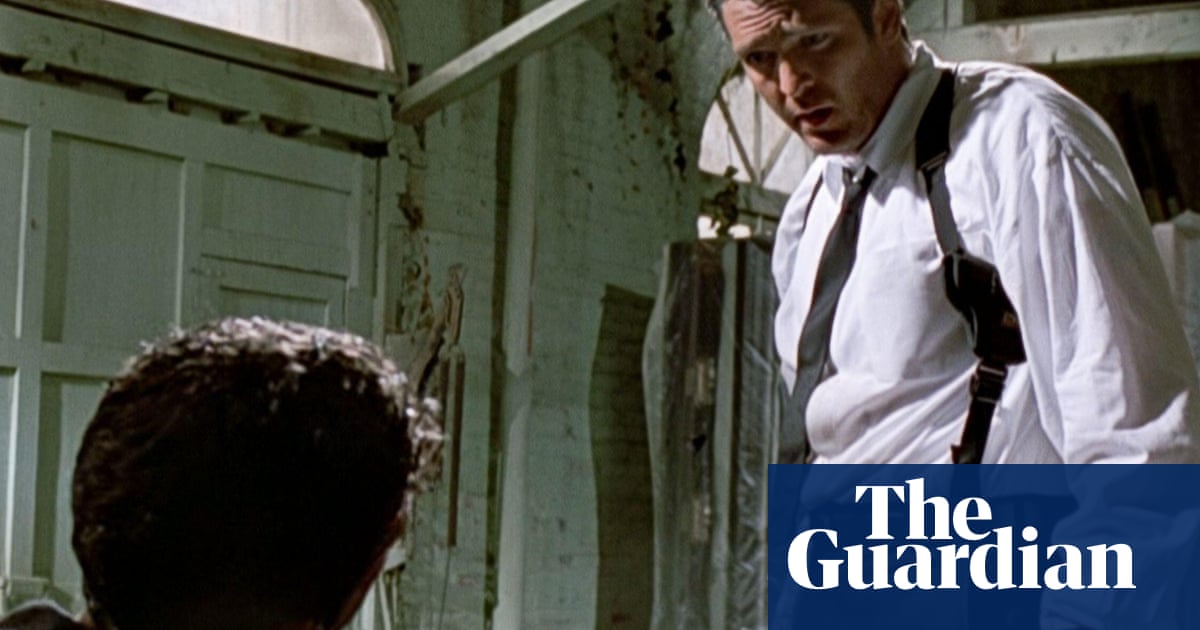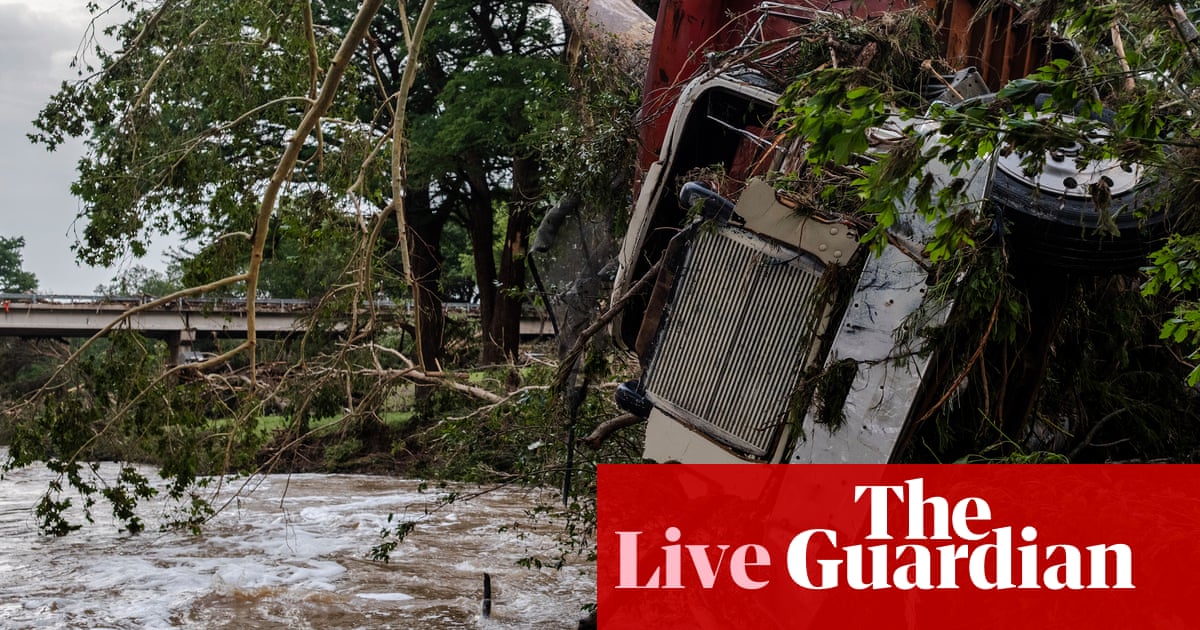For a long time, Lola Hassid Angel did not want to talk about the horrors of her childhood. Her experiences of the second world war had not been light: by the age of eight, the Holocaust survivor had “reached adulthood”, seen things she should never have seen, heard sounds she should never have heard, and been confronted by terrors she could neither forgive nor forget.
Which is why the 80th anniversary of the liberation of Bergen-Belsen by British forces on 15 April 1945 is as much a cause for joy as for the horror to come flooding back.
“But it’s also different,” Angel, now 88 and a great-great-grandmother, admitted over tea in her apartment in Athens. “Now I want to tell the whole world what happened. And that’s because I want all these men who lead us to know what war really looks like. The Germans had a zeal for death; they had turned it into a science.”
Quick to smile, gravel-voiced and diminutive, Angel is among the very last of Greece’s dwindling Jewish community to have survived Bergen-Belsen, a concentration camp complex in northern Germany. Its victims included Anne Frank, the teenage diarist who would become one of the most famous casualties of the Holocaust.
“What happened there was an abomination,” Angel said. “An abomination that historians will one day refer to as a dark page but which we, as the last survivors, are duty-bound to describe.”
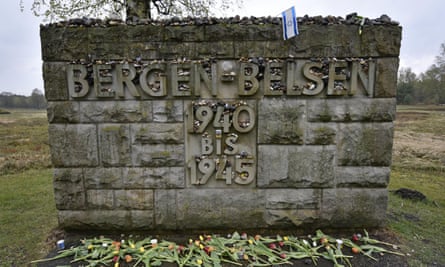
Retreating Nazi forces agreed to hand the camp over to the allies on 12 April. It was, by all accounts, a peaceful exchange until the 11th Armoured division of the British army, backed by the 63rd Anti-tank regiment, arrived at the complex’s barbed wire confines on 15 April.
Witnesses said nothing could have prepared them for what they found. The stench of death was everywhere, in the corpses piled high, some green, almost all emaciated, lying by the thousands around the camp in various stages of decomposition. Typhus had spread. So, too, had dysentery and starvation. Of the 60,000 people locked inside, more than 14,000 would die within weeks of liberation because freedom had simply come too late. More than 70,000 people were killed on its grounds, most Jewish but also including 20,000 Soviet prisoners of war and other Nazi targets such as Roma and gay men.
“In Auschwitz it was the gas chambers, in Bergen-Belsen it was death through hunger and disease,” said Angel, who can vividly recall the arrival from Auschwitz in October 1944 of thousands of “exhausted and skeletal” female inmates, including Frank and her older sister, Margot. “The Germans were losing the war. They felt they were running out of time and they knew that in Bergen-Belsen, where typhus was so rife, they’d die very soon.”
The Angels were among the last Jews to be forcibly evacuated by the Nazis from Athens in April 1944, three years after the Wehrmacht had raised the swastika over the Acropolis and barely six months before the occupation would end.
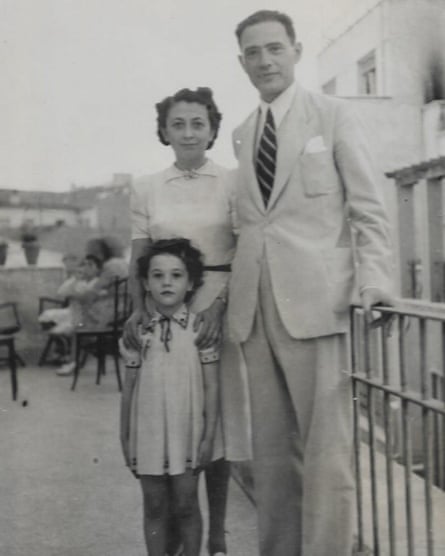
Like others who had sought refuge in the Greek capital, Lola’s parents, both Spanish passport holders, had fled south from Thessaloniki, home of one of Europe’s oldest Sephardic Jewish diasporas, when it became clear the Third Reich had the Ladino-speaking community in its sights.
With false identification papers and the courageous support of the resident Spanish consul – credited with delaying the deportation of hundreds of Sephardic Jews – the family had avoided detection until two members of the Gestapo and a Greek collaborator knocked at the door of their small rented apartment on 25 March 1944. It was Greek Independence Day.
“They appeared at dawn and dragged my father away but not before he had phoned Sebastián and Elena de Romero Radigales [the Spanish consul and his wife] who were family friends,” she recalled. “As ‘foreign Jews’ it was said my parents could be exchanged with German prisoners of war but Elena was very concerned and desperately appealed to my mother to adopt me.”
The wagons of the windowless locomotive that the Angels were forced to board served both as a passenger train to Bergen-Belsen and a death convoy for those in the rear carriages who, after a stopover in Vienna, continued on to Auschwitz.
Lola had not yet turned seven when she made the voyage. Time has not dulled her memory of the eight-day journey or of the train’s panic-stricken human cargo; “every so often” she still feels the lump in her throat that very soon came to symbolise fear. By the time the family arrived in the camp, the SS officers who had taken control had mastered the art of mass murder that underpinned the racial restructuring of the “final solution” envisaged by the Nazi regime.
In March 1945 alone, weeks before the camp’s liberation, more than 18,000 detainees died in conditions so horrific that British relief teams felt fit to say it was difficult to discern the living from the dead.
For the Angels, as so many others, there was no prisoner swap once D-day occurred. “At first they gave us Swedish Red Cross parcels and treated us reasonably well,” said the octogenarian. “But after 6 June 1944 the boxes stopped and we were given one piece of bread a day with diluted milk in the morning and a soup of water with potato peel at night. I didn’t wash in over a year. I was full of lice.”
As German defeat approached and the allies homed in, forces at the camp decided to put the estimated 2,500 “foreign Jews” initially lined up for exchange on a death train headed north. Lola and her parents were among them. The train was intercepted by rapidly advancing US Ninth Army troops on Friday 13 April.
“Suddenly it stopped near the lake of Magdeburg and the German guards left, leaving the train doors open. Hours later there were these Americans liberating us. I honestly believe I had two lucky stars: Sebastián and Elena who stopped us being deported earlier, and those Americans. If we had been kept in Bergen-Belsen, as was the case with my mother-in-law, it would have been the British rescuing us, without whom, of course, the war would never have been won.”
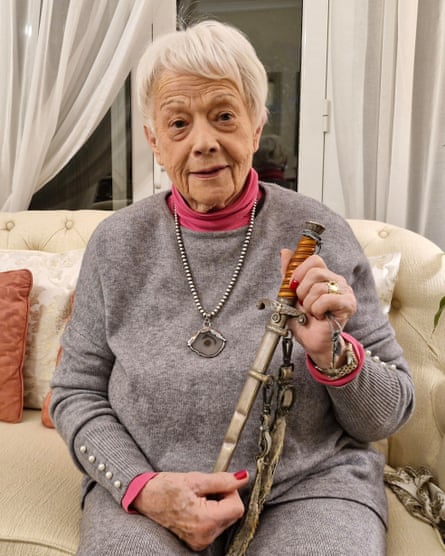
A day later US troops, commandeering the homes of villagers in the area, ensured the Angels and fellow detainees had a place to wash, sleep and eat. “An American soldier stood outside while our host, a Nazi marine commander, was forced to open up his house to us. For the first time we slept in a smooth bed with eiderdowns and were able to take a bath,” she smiled. “I’ll never forget my mother spotting a small dagger on a table, picking it up and saying: ‘Those who are victorious can take the weapons of the vanquished.’ I’m proud of that dagger and still have it even now.”
These days, most of Angel’s memories are “of the good things” that followed liberation. “The fear, the terror, takes over when I’m asleep. It appears out of nowhere in my subconscious, which is why I can never forget.”
In recent years, Angel has made a point of visiting Greek schools to address the Holocaust. The fresh-faced pupils listen in disbelief when she tells them that about 1.5 million children younger than 13 died in gas chambers during the war.
“At the end of each talk it’s always the same,” she said. “My legs shake, my head spins, knowing what really happened not so very long ago. The Nazis finessed the art of killing people, down to how much Zyklon B gas was needed to kill hundreds at the same time. Technology has progressed so much since then. My big fear is if another Hitler comes along, the next war will be much worse.”

 2 months ago
55
2 months ago
55



